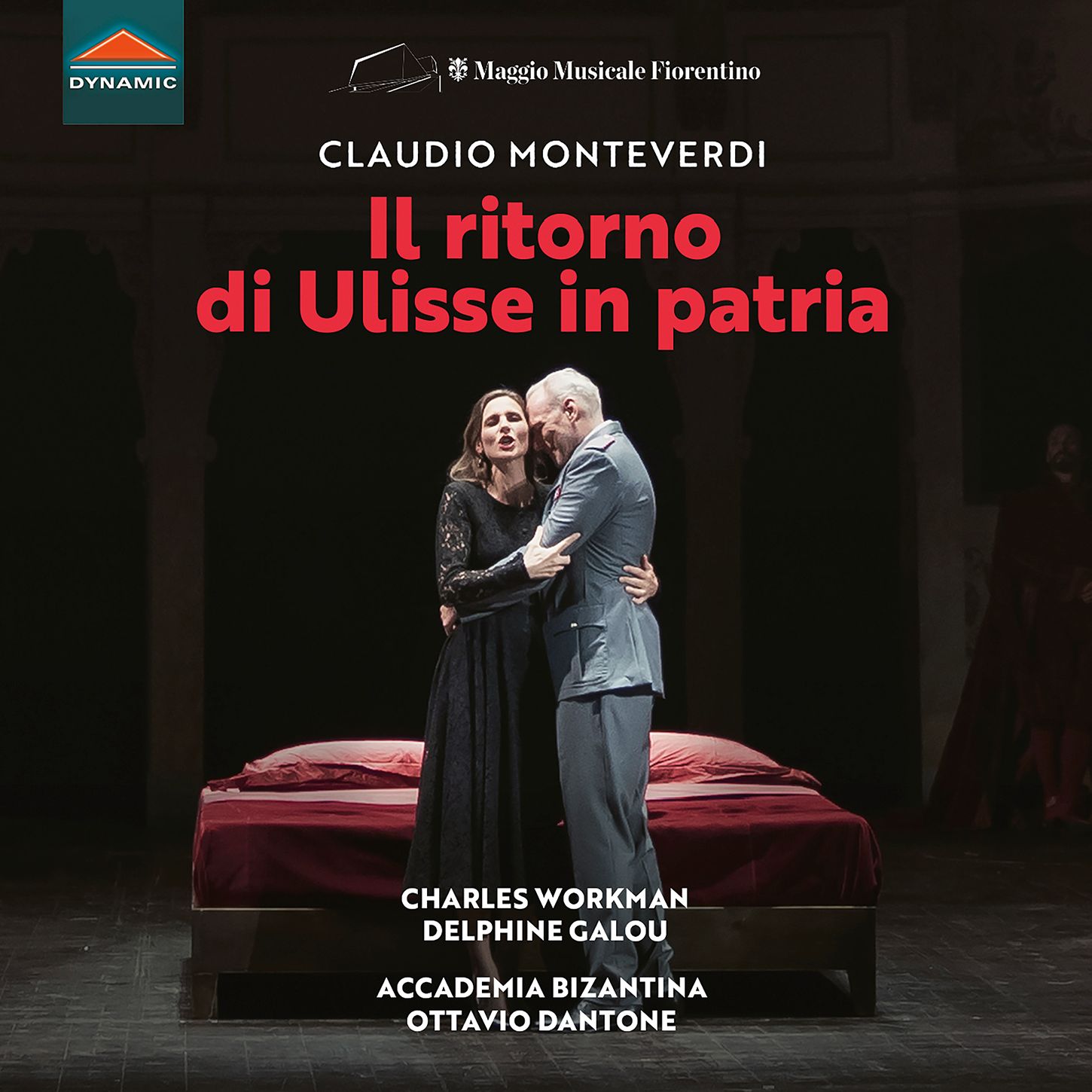A Tale of Two (More) Ritornos: Monteverdi's Il Ritorno d'Ulisse in Patria
Gardiner’s Ulisse is forthright and on its own terms convincing, and Dantone has his moments, but Fuget’s Versailles performance remains the clear leader

We are not quite comparing like-with-like here: the Dantone, from Maggio Musicale, Fiorentino (Florence, Italy) is a fully staged performance (also available in sound-only compact discs), while the Gardiner is what we might today call semi-staged, with instrumetal ensemble on-stage with the (costumed) singers. And of course, we recently had the Ritorno from Les Épopées on the Château de Versailles Spéctacles label.
One should perhaps register how aware one is during a performance of Monteverdi’s use of different modes of expression for different characters - how well these are etched, in other words. So, Gods and noble characters use “high“ and tragic recitative as a means of expressing themselves; the servant Melanto and her lover Euymachus have simple tunes as befits their rank; Antonius’ lines are uneven (a reflection of his morals). Monteverdi plays with this idea, as in disguise a character can take on another mode; similarly, when Melanto asks Penelope to be more open to new lovers, she imitates the Royal style.
Here is a taster for the Dantone production:
The opening finds L'Humana fragilita and interactions with Il Tempo, Fortuna and Amore .... the space in the theatre is well-used, with singers on stage as well as in spatiallyiseperated boxes in the auditorium; dress in a mix of modern and period. After the prologue, the curtains open and the cast make sits way from the back of the stalls through the audience to assemble on the stage.
Let’s hear the Prologo:
There are amazing sounds form the pit to the Queen's (Penelope's) aria (the sufferings of a Queen ..). I do like Daphne Galou (wife of the conductor); she has a fabulous duet with Eurymachus, watched from above by the assembled cast.
The flirtation scene's opening sinfonia offers maximal contrast. Miriam Albano is a strong Melantho; a pity her suitor, Hugo Hymas, is so unsuitable with a notably forced, choreographed, un-erotic straddling; his voice is rather reedy and over-vibratoed, too.
Sadly this production is not as comprehensively and evenly cast as the Versailles: Guido Loncordo is a weak Nettuno (Neptune) - and it doesn’t do to have a weak God of the Sea, certainly not whe the words tell us he is raging against he arrival of the Phœnecians. Jupter (Giove), Gianluca Margheri, is stronger.
Minerva is fun though, cast in a sort of cowgirl outfit in act I. The role is taken by Arianna Venditelli - but she is not always 100% accurate of pitch in this first act, especially at speed. She finds her centre - while “flying” (she is suspended in a Baroque staging effect, suspended via strings, which represents her flying chariot) - at the opening of the second act.
The Sinfonia that opens Part II is remarkable, full of energy. Miriam Albano is once more superb here in her scene with the rather less full-voiced Hymas (Eurymaco).
Charles Workman is a superb Ulysses, as we can hear here:
Yet, somehow this set fails to come together to a coherent whole. It is available in sound-only, which given the somewhat drab production might be the preferable avenue.
With John Eliot Gardiner, we immediately feel a profound sense of depth - the mimed parting of Penelope and Ulysses at the opening, the spatial separation (albeit within a small space) of the characters early on, all work well. The standard of singing in this performance is remarkable, up there with the Fuget - although I would suggest there is just that extra bit of emphasis on the words from the latter.
Gardiner uses a fairly large instrumental ensemble, including cornetts, recorders and dulcian.
Gardiner also inserts some extra music into the performance. Here is 'Brilliamo, che l'onde’, an interpolated extract from Tirsi e Clori, from Monteverdi's Seventh Book of Madrigals (1619).:
The Ulysses here is Furio Zanasi, who makes a fine foil for Lucille Richardot (who also took the role of Penelope in Stéphane Fuget’s performance, where I find her more at home and ultimately more convincing). Krystian Adam is impressive as Telemaco, while the servants Melanto and Eurymaco (Anna Dennis and Zachary Wilder respectively) relish every moment of their interactions.
Gardiner’s Ulisse is forthright and on its own terms convincing, and Dantone has his moments, but Fuget’s Versailles performance remains the clear leader of the field.
